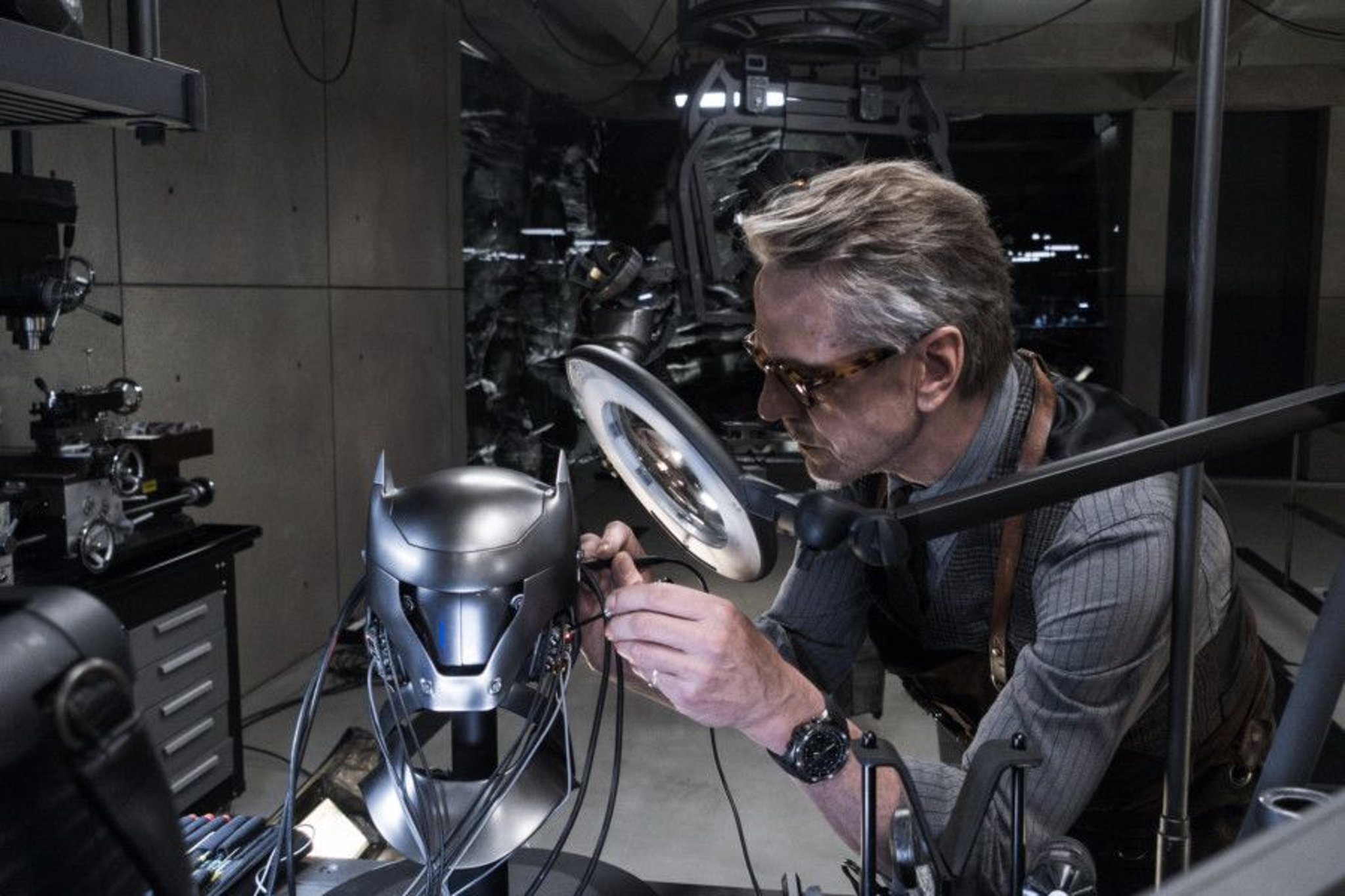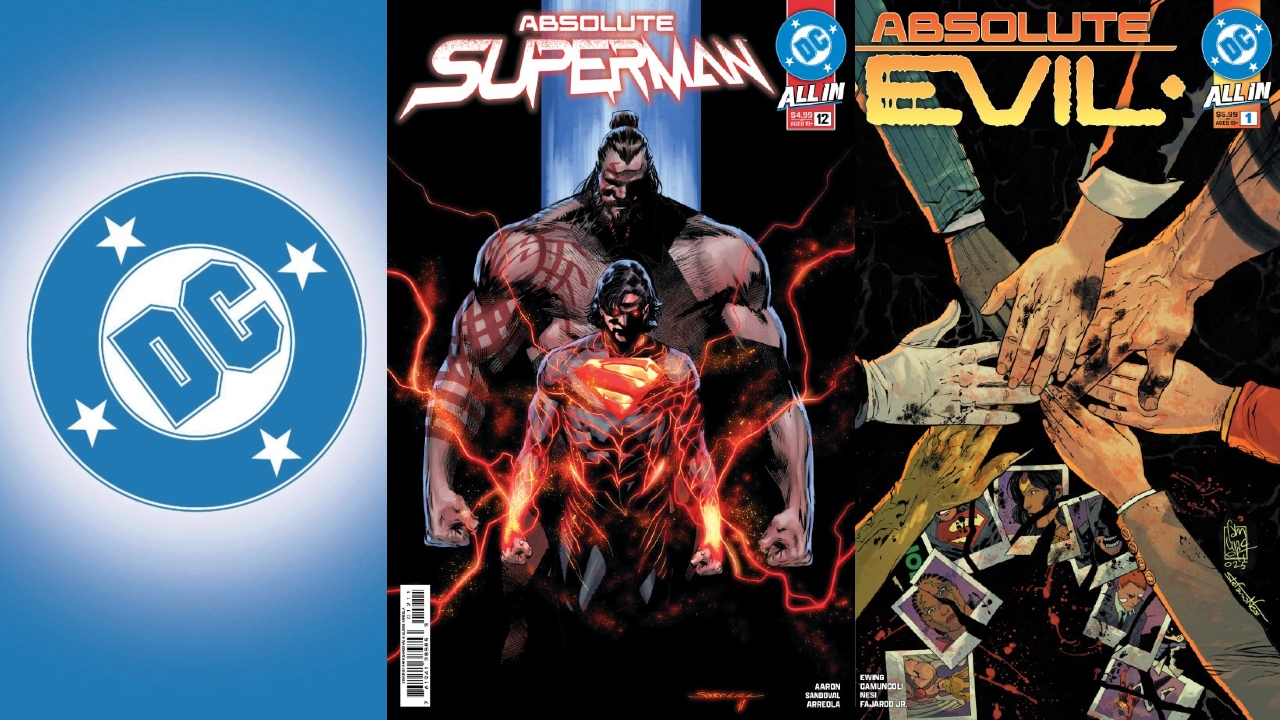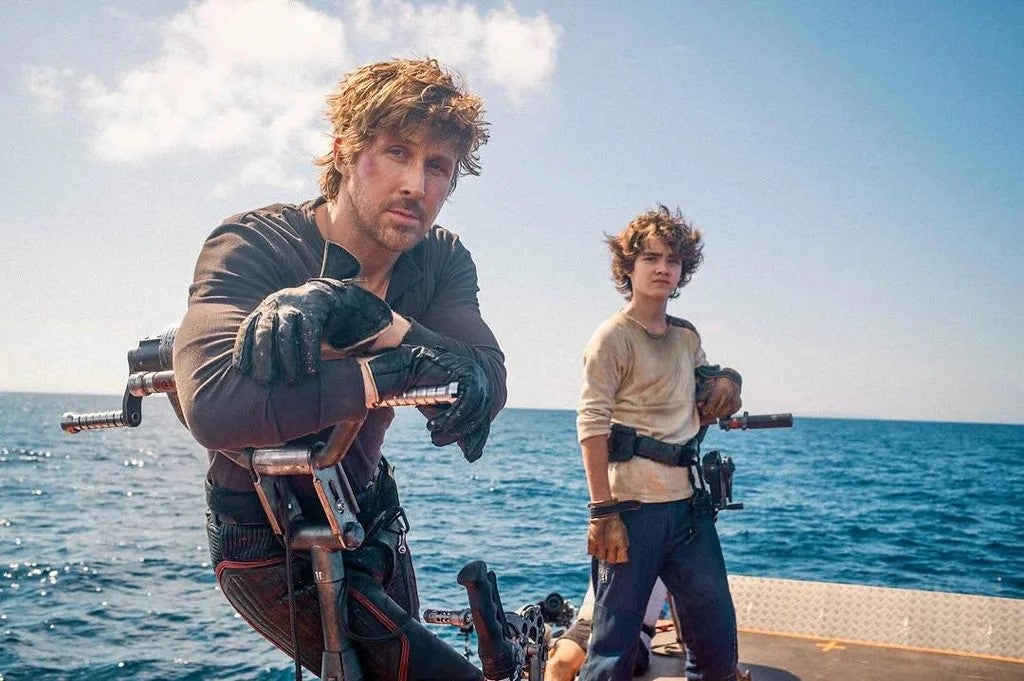Reality may be in question.
Steven Knight, a masterful storyteller, has brought Serenity on to the big screen that has a revealing twist in the M. Night Shyamalan realm.
The film is about Baker Dill, a fishing boat captain leading tours off the tranquil, tropical enclave called Plymouth Island. His quiet life was shattered when his ex-wife Karen tracks him down with a desperate plea for help. She begs Dill to save her—and their young son—from her new, violent husband by taking him out to sea on a fishing excursion. Only to throw him to the sharks and leave him for dead. Karen’s appearance thrust Dill back into a life he’d tried to forget, and as he struggles between right and wrong—his world is plunged into a new reality that may not be all that it seems.
The film stars Matthew McConaughey, Anne Hathaway, Jason Clarke, Diane Lane and Djimon Jounsou.
LRM Online had an exclusive interview earlier this month with director and writer Steven Knight on his approach and creation of Baker Dill and the world of Plymouth Island. We talked about his masterful storytelling, direction and cast of the movie.
Knight has directed films Locke and Redemption in previous years. He also written numerous screenplays with Director Pretty Things, Eastern Promises, The Girl in the Spider’s Web, Pawn Sacrifice and The Hundred-Foot Journey. He continues to write for the television series Peaky Blinders and Taboo.
Serenity is playing nationwide in theaters today.
Read our exclusive interview below.
LRM: I was wondering where did the original idea came for Serenity?
Steven Knight: It’s an amalgamation of different things. One of them was I went fishing on a boat some years before that. The captain was a really nice person. You’re a tourist and they look after you until a fish got on the line. Then he was obsessed with the fish. It was just really interesting to me this obsession with this person to catch a big fish. That was all he cared about. The only thing he cared about in the world. I began to wonder what sort of person to create the character of Baker Dill. I wanted to do was create a story that stands up that that is a conventional movie story. Then completely change it and see if he could do that without breaking it. I just wanted to take the biggest risk possible and set that up. Then take away the stakes that you thought were there and make them totally different. That was the plan.
LRM: So Baker Dill was based on this actual person.
Steven Knight: It was motivated by this based on this person.
LRM: Just out of curiosity, did he catch that fish?
Steven Knight: He was certain he was looking for a particular big fish. He was catching the big fish, but in my opinion the fish he was after didn’t exist. That was the opinion of the mates as well.
LRM: That’s actually interesting. Did you catch the fish?
Steven Knight: No, I caught some fish. I didn’t catch that fish. [Laughs] The story of when we began and we set up in Mauritius. I’d been there awhile and [Mattnew McConaughey] arrived and he’d not really been fishing before. We decided to go out with a fishing guide. The guide to teach Matthew the movements of how you set up to catch a big chew. Mauritius is an islande obsessed with fishing. We went out trolling and nothing happened. I said we better try the method we’re going to be shooting, which is using bait.
We put some bait in. The guide is explains what happens, this is how you move the reel. Then a fish bit. It took the bait. Matthew actually reel the fish in. It was a 185-pound yellowfin tuna.
LRM: No kidding.
Steven Knight: It sounds like a story make up. We were there purely, to not even rehearse, but to learn the movements. Even the guide said it’s very early to be catching this size of tuna. We went back onto the island. We knew this was really good.
LRM: How many fishing expeditions did you have to research? [Laughs]
Steven Knight: We went out a few times. That story was our first time and it was the best. After that, we were mocking it up when we were shooting.
LRM: How long were you on the island for both research and production?
Steven Knight: It probably be about three months. Three and a half.
LRM: That’s quite a bit. Why this island was so perfect? You could’ve get it done anywhere?
Steven Knight: Well, we thought we could find a Caribbean island. None of them were quite right. We did try a couple in the Caribbean. When we went to Mauritius, Mauritius is an island where if you point the camera in any direction–you’ll think you’re in a different place. It’s like India in some places. It’s like Africa. It’s like the Caribbean. It’s just like China. It’s like colonial fronts as well.
Everybody rubs along. Everybody gets along. It’s sort of quite an education actually. It’s a real mix of cultures and architectural styles. The landscape and the mountains are very old. It was perfect for something that was about this.
LRM: How much time do you spend on the boat? It seems like quite a bit for the production.
Steven Knight: We decided early on not to use green screen at all because it’s not the same. I really wanted to be on a real boat, which has its own problems. It was okay. We’ve got a decent size boat. We’d set up a steel platform in the Indian Ocean, so that we had 360 degrees to shoot. It was really hard work, but it was worth it cause you know you’re really at sea.
LRM: What were some of the challenges in a tight space like this?
Steven Knight: It’s lack of space. It’s movement of the ocean. It’s the weather. It’s the light, because when you see the light changes very quickly–you’ll have to deal with that. Just the inconvenience of getting on and off the boat was sometimes quite perilous.
LRM: With Matthew, I understand that you had this entire project in mind for him.
Steven Knight: There’s this sort of authenticity about Matthew. I always look for actors who you imagine if they’d made different decisions early in their lives–they could have been a character. He could have done that and be that person. It needed someone who, this is a spoiler, but if you were a kid in inventing your father, you invent Matthew. That’s why I really wanted it to be him.
LRM: At which point did you think Matthew was perfect? Was it while you’re writing the script or afterwards?
Steven Knight: What I tend to do when I’m writing these scripts, I imagine an actor. Usually, not always. It helps a bit. Even if you don’t get that actor, you’ve got to unity within the character since you’re thinking about the same physical presence. It’s great when you get the person that you wanted to.
LRM: Did you also had other actors, other cast members in mind too?
Steven Knight: Anne [Hathaway] was a dream come true. I didn’t think we get her, but we did. I think Djimon [Hounsou] probably nailed on as well. It had to be him.Then we got incredible Jerry Strong. He’s an unbelievably good actor.
LRM: I love your stories. You’re a masterful storyteller. How did you manage to take a simple fishing trip and create this elaborate world full of twists? I mean how did that come about? What was your approach?
Steven Knight: If I’m directing something–I like to set myself a challenge. Take a risk. With Locke, could you take the life of an ordinary middle age man doing the boring job working with concrete and turn that in to film? With Serenity, can you set up in the very conventional way, almost in the style of the movies from the forties, then completely pull it away and have it turn into something totally different? So that was the challenge that I wanted to set myself.
LRM: You just mentioned what the forties as the setting. Why that type of setting?
Steven Knight: In retrospect, you’re in a fictional world. I didn’t want it ever to be obviously fictional. The dialogue is always a little bit heightened, just a little bit higher. So it’s a little bit Bogart It’s a little bit almost fiction dialogue. I just wanted to just dial it up just a little bit so that people sort of notice it. Retrospectively, you will understand.
LRM: One of the things that was fascinating, my mind was going all over the place, was Anne Hathaway’s clothing. I was trying to like read that there was some kind of symbolism with their clothing throughout the entire movie. Was that on purpose?
Steven Knight: She wears white a lot. She’s pure. She’s the creation of the son. The son created his mother will create purity. The whiteness of what she wears is deliberate. It’s almost as if she’s come to heal things as well. She almost looks like a nurse in time. That is deliberate.
LRM: Were there other types of symbolism or imagery is that people who may not catch on that you can reveal for us?
Steven Knight: Well, I think people should find out for themselves. If you start to talk about that stuff that’s in the film, explicitly, it sort of takes it away. It becomes more mechanical. There are lots of images of crosses with salvation and damnation and other stuff that are in the film. I try to create a world that has got its own references, if possible.
LRM: You certainly put everything on purpose for a specifically for multiple viewings, isn’t it?
Steven Knight: Yes, exactly. For durability, I hope is thatin 10 years time or15 years time, someone might see and it won’t be what they expect from that period.
LRM: What do you suppose was the most difficult thing that you had to do on this project?
Steven Knight: Make that twist work. It’s deliberately difficult. I wanted it to be difficult because I wanted to create a character that hopefully people respond to. Then take away his reality and then have him questioning his own reality. It was partly inspired by a French philosopher said if computer technology continues to advance at the rate it is advanced in the past 30 years, then for the next hundred years, then there’s no question–there will be computer generated characters who are very self aware and believed themselves to be. If that’s the case, purely mathematically, there’ll be a billion times more generated computer characters who believe themselves to be real and there will be real people. Therefore by the law of probability, that’s what you are.
LRM: That is actually interesting, because after I finished the movie–I started questioning myself. Was that your purpose? [Laughs]
Steven Knight: Yes, absolutely. I’m interested in the definitions of reality, because anything you do in fiction pales into insignificance compared to what is revealed by quantum physics, quantum mechanics, the nature of reality as it’s been explored at the moment. Where recent theorizing suggests that quantum only works if reality is a flat screen. [Laughs] It just makes you think, “Oh, my God!”
LRM: Could you talk about any future projects you may have after Serenity?
Steven Knight: I’m doing quite a bit of telly. I’m doing more Peaky Blinders and I’ll be doing more of second season of Taboo, which is almost done. I’m doing a TV thing for Apple, which will be on their platform this year. I’ve got a couple of films being made this year. It sounds like a lot with it. It’s things that I’ve written over the last three or four years that has just come into fruition. There were two firms be made this year, which is Jake Gyllenhaal film, and an untitled thriller.
LRM: One last question for aspiring filmmakers who love your storytelling style. What do you suggest for them if they want to adapt?
Steven Knight: Genuinely, it sound like it’s not true. But, don’t plan it in advance. I try to do is start writing and then see what happens. For example, in Serenity, I began writing the story and then started to subvert it after I began writing it. I think if you plan things too methodically and obey three act rules, arc of the character–it maybe be better to be conventional. In my opinion, it’s better to just try and do stuff as it comes to you as you’re sitting at the keyboard.
LRM: Hey, thank you very much. I appreciate it.
Steven Knight: Not a problem.
Source: LRM Online Exclusive

 FOR FANBOYS, BY FANBOYS
Have you checked out LRM Online’s official podcasts and videos on The Genreverse Podcast Network? Available on YouTube and all your favorite podcast apps, This multimedia empire includes The Daily CoG, Breaking Geek Radio: The Podcast, GeekScholars Movie News, Anime-Versal Review Podcast, and our Star Wars dedicated podcast The Cantina. Check it out by listening on all your favorite podcast apps, or watching on YouTube!
Subscribe on: Apple Podcasts | Spotify | SoundCloud | Stitcher | Google Play
FOR FANBOYS, BY FANBOYS
Have you checked out LRM Online’s official podcasts and videos on The Genreverse Podcast Network? Available on YouTube and all your favorite podcast apps, This multimedia empire includes The Daily CoG, Breaking Geek Radio: The Podcast, GeekScholars Movie News, Anime-Versal Review Podcast, and our Star Wars dedicated podcast The Cantina. Check it out by listening on all your favorite podcast apps, or watching on YouTube!
Subscribe on: Apple Podcasts | Spotify | SoundCloud | Stitcher | Google Play



